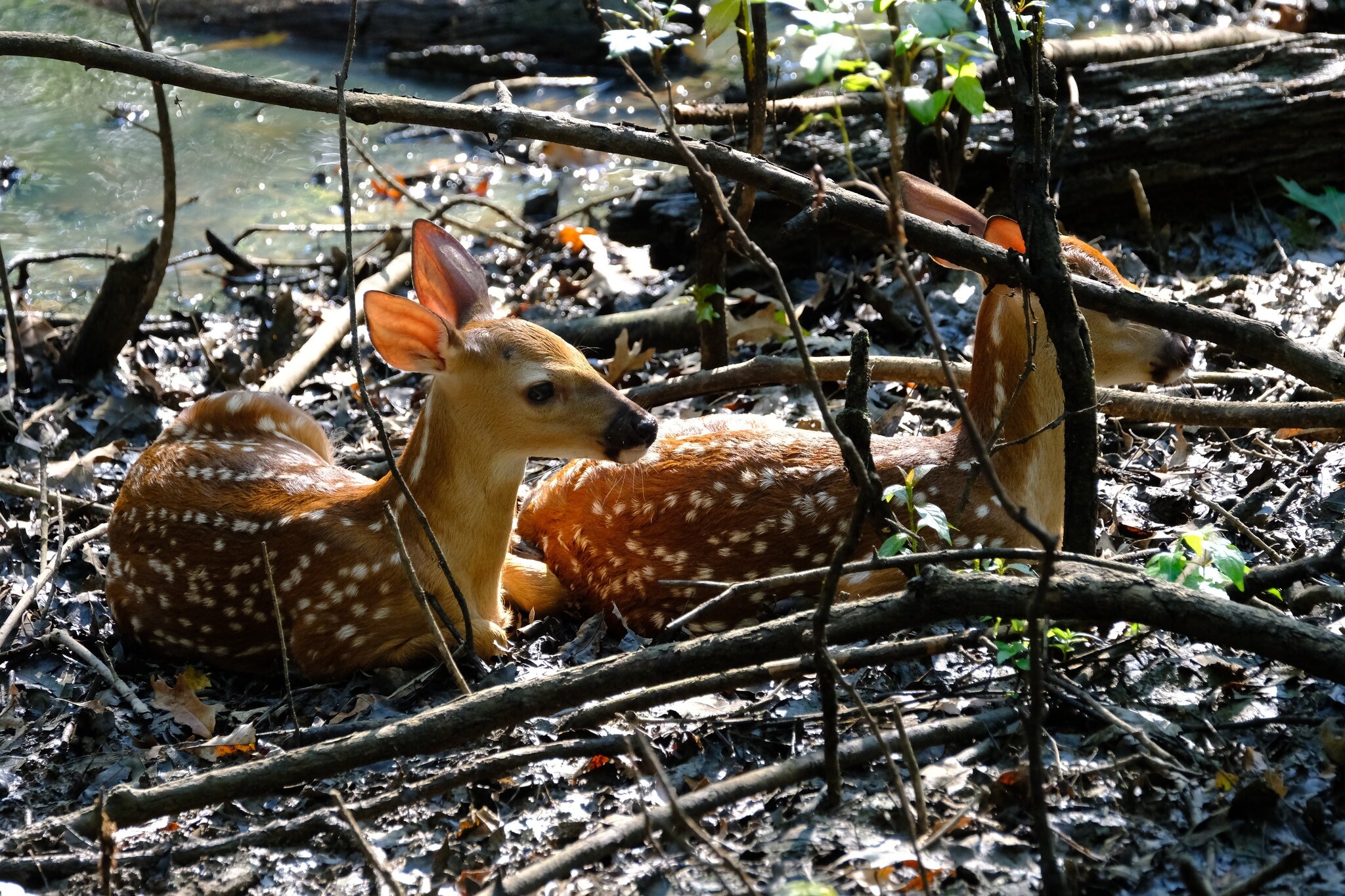Does This Baby Animal Need Help?
First, Follow These Steps
Spring in Chattanooga is a lovely time showcasing blooming trees and shrubs, and perennials poking their heads through the warming ground. Spring also brings animal babies. This is one of the busiest times of the year for wildlife rehabilitators, as many well-meaning people find animal babies that they think need help. Most animal babies do not need human intervention and do not benefit from our intrusions. Wild animal mothers are the best caregivers! The most commonly found babies in our neighborhoods are songbirds, eastern gray squirrels, cottontail rabbits, opossums, raccoons, and deer. What should you do if you find one of these animal babies?
If the baby is injured, or appears to be without a parent or away from the nest, follow these basic instructions until you can contact a wildlife rehabilitator:
Prepare a cardboard box or pet carrier by placing an old towel inside. The box should only be large enough for the animal to rest comfortably in, but not so large that it can thrash around and cause further damage. Make sure there is adequate ventilation.
Wear heavy gloves to prevent the risk of injury or transfer of diseases. If the animal is small and not attempting to bite, scratch or puncture you with talons, pick it up and place it in the container. If the animal is large or attempting to do any of the above, gently use a broom or similar item to scoot it into the container. If the animal is winged, you can throw a sheet or blanket over it and slide it into the box.
Think of the way this animal hunts or forages for food when capturing it. Does it use its talons, its beak or its teeth? It will also use these to defend itself.
Be mindful of the animal and the chosen transport container. Make sure that it is secure. Many animals can squeeze through the smallest of gaps and can push or pull with great strength when scared. Also, many animals such as chipmunks and squirrels can chew through cardboard. Keep this in mind as loose animals in a car can be a tricky situation.
Place the container in a warm, dark, quiet place away from people and pets to reduce its stress until you are able to get it to your local wildlife rehabilitator. Warmth is critical as the animal’s body temperature is lowered when in shock. It may be helpful to place a heating pad on low underneath only half of the animal’s box or carrier.
Do not offer food or water.
Is the animal baby away from its parent or nest? Animal parents usually have an eye or ear on their offspring. If you see a baby on the ground, do not immediately assume it needs help.
Wait and watch a reasonable amount of time. Remain indoors where your presence will not frighten her.
Remember that most animal mothers do not voluntarily abandon their babies. It’s okay if the baby vocalizes and cries out; this will help the mother locate it.
If the mother doesn’t return for her baby within two hours, or before it gets dark, place it in a box lined with soft rags and keep it in a warm, dark, quiet place. If you have a heating pad, turn it on low and place half the box on top of it.
Do not offer food or water.
Below we’ve outlined some additional tips for most of the species and scenarios we get questions or incident reports about — bunnies, baby birds, fawns, and baby raccoons. If you are ever unsure what to do in a situation or have taken the steps above and secured an injured animal, call a licensed wildlife rehabilitator for advice. Check out our FAQs page for contact information for local wildlife rehabilitators. We recommend Happinest Wildlife Rehab and or the Chattanooga Zoo.
If you overturn a nest (this usually happens with rabbits when mowing) and no babies are injured, simply place the nest material and babies back where they were. Mom won’t mind. A mother rabbit only feeds her babies one to two times per day, so you may not see her.
If you see a baby bird on the ground, it is most likely a fledgling learning to fly and is being closely watched by a parent. Just observe the situation and make sure a parent comes or the baby makes its way to safety.
Raccoon babies often wander from their nest when mom is out foraging or sleeping. Leave them alone and once again observe the situation. Mom will either retrieve the babies or they will make their way back to the nest. Raccoons are rabies vector species and require special handling.
If you come upon a fawn bedded down, it is not abandoned! Mother deer park their babies in the woods while they forage and will return for the baby. Do not approach the fawn, you don’t want to spook it so it moves from the location Mom placed it.
Tennessee state law prohibits individuals from keeping wild animals without a permit. This is done for the well-being of the animal and you. Most wildlife rehabilitators will assist you with emergency instructions for wildlife care until you can bring the animal to the rehabilitator. Please remember, wildlife rehabilitators are volunteers with private licenses who spend countless hours caring for our native wildlife at their own expense. Please consider a donation when receiving help!


